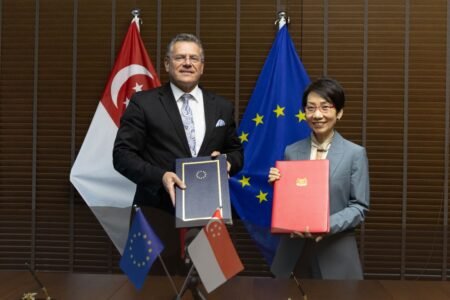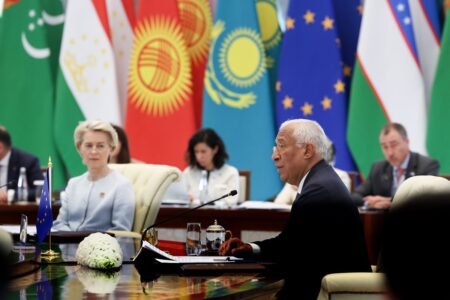The agenda of the Doha Round is much broader than past global trade negotiations and is specifically targeted at addressing the needs of developing countries.
Advertisement
At each important point in the Doha negotiation significant steps have been taken to respond to the concerns raised by developing countries. Alongside the core negotiating agenda, the Doha talks have also included important work to raise global levels of Aid for Trade and to improve trading conditions for the very poorest countries.
The EU has been a strong supporter of attempts to ensure that the Doha Round reflects the realities and concerns of developing countries. Thanks to this advocacy the Doha negotiations have rejected a ‘one size fits all’ approach and have introduced a wide flexibility to address the particular capacities and needs of different developing countries.
One of the most important goals of the Doha Round is to increase trade between developing countries themselves. Trade between developing countries is the fastest growing part of global trade. Developing countries pay 60% of the tariffs they pay to other developing countries. This is why the EU has argued that the strongest developing countries such as China, India and Brazil, who are increasingly competitive and who have benefited from open global markets, should make some contributions in the form of new tariff reductions. The necessary balance between commitments by developed and these fast-growing developing countries has been difficult to find, but it must be part of a final Doha agreement.
Agriculture
Agriculture was always going to be high on the agenda of the Doha Round. There is a clear expectation that developed countries would reform the way in which they support their farmers and improve the opportunities for farmers in developing countries to sell into their markets. Europe began a wide-ranging reform of its farm policies in 2003, which it has offered to consolidate and render irreversible through a Doha agreement. Only a world wide negotiation could secure a similar commitment from the United States. In July 2008 the EU offered a package conditional on proportionate measure by others that included the commitment to:
- Reduce trade distorting subsidies to its farmers by up to 80%;
- Eliminate export subsidies for farm goods altogether, if others agreed to do the same;
- Cut its border duties on imported agricultural products by an average of 60%, with the highest cuts being applied to the highest tariffs;
A Doha agreement on these terms would be the most ambitious reform of farm trade in history. It would genuinely benefit those developing countries that are competitive farm exporters. The Doha package would also include measures to soften any negative impacts of greater farm trade liberalisation on those developing countries that are less competitive in agricultural trade and thus dependent on special access to the EU market.
While the focus on agriculture in the Doha negotiations has been understandable, it should not obscure the fact that most of the biggest gains for developing countries lie not in farm trade but in greater opportunities to trade industrial goods and services.
Industrial Goods
Most developing country exports are industrial goods, and most of the tariffs that developing countries pay when they export are paid on industrial products, to other developing countries. The goal of the Doha Round has been to create new opportunities for trade in these products. Although most developing countries already have very good access to the EU market, a global agreement would create valuable new trade. In these negotiations most developing countries are exempt from the obligation to reduce their border duties. The only exception are a small number of fast-growing countries like China, India and Brazil, who are being asked to make some contribution as a reflection of their growing strength and the benefits they have taken from the open global economy. However, any reductions in these countries will be much less than those undertaken by developed countries. As in the agriculture negotiations, a final agreement will also take into account the short term needs of any developing countries that are currently dependent on preferential access to European markets and who will find it harder to compete in a world of more open trade.
Special arrangements for the poorest countries
The fifty Least Developed Countries (LDCs) will not be subject to any obligations as part of a Doha agreement. At Hong Kong in 2005 it was agreed that developed countries, and those developing countries in a position to do so, should provide duty free and quota free access to all products from all Least Developed Countries by 2008. At the insistence of the US, an interim target of at least 97% of tariff lines was agreed, coupled with a commitment to work progressively towards 100% coverage.
- The EU, Australia and New Zealand already offer, or will shortly offer, 100% access. The EU does this through its Everything But Arms scheme.
- Canada and Japan have met the interim 97% target but still exclude a range of sensitive products. The US has still not reached the target of 97% coverage and continues to exclude certain Least Developed Countries from its scheme.
- India has introduced an expanded duty-free quota-free system for Least Developed Countries, as has China. Brazil has announced its intention to improve its market access for Least Developed Countries.
Other poor and more vulnerable developing countries will also be expected to provide only very limited commitments. These countries will however stand to benefit from the market opening offered by others.
Source: European Commission







